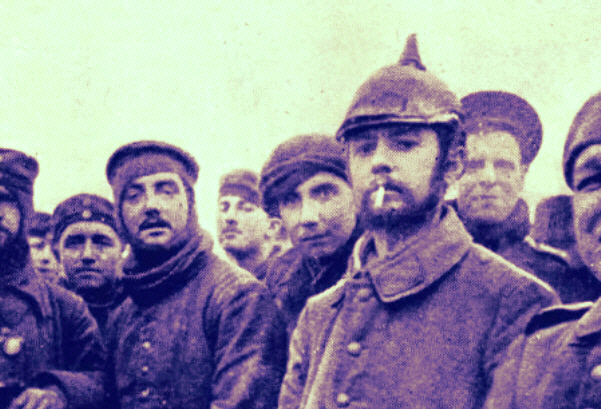The account of a lieutenant in the 2nd Battalion, Scots Guards, shows how some of the participants took a practical approach:
They [the Germans] took me for a corporal, a thing I did not discourage, as I had an eye to going as near their lines as possible! I... then escorted them back as far as their barbed wire, having a jolly good look round all the time and picking up various little bits of information, which I had not had an opportunity of doing under fire! I went straight to HQ to report. The crucial thing to note is that distrust was a feature of this and other truces occurring throughout the war. The English respected a brave and resourceful enemy but there was no love or liking. If there was no hostility, neither was there a relaxation of the will to win; if not that, then at least there was no relaxation of suspicion. And it proved, above all, to be an excellent opportunity for a safe reconnaissance. There is no evidence that the truce extended to the French front, which is understandable since they had started a major counterattack in the Champagne on 20 December. The Germans were the invaders and were on French soil. The memories of defeat in 1871 and the loss of Alsace-Lorraine was too vivid in French memory to allow any rapprochement with the hated Boche. Frank Richards, one of the very few "other ranks" to write a book about the war after beating odds on the order of thousands to one by surviving all four years, reports that the French people "were saying all manner of nasty things about the British Army" when they ". . . had heard how we spent Christmas Day."  Photo of the Actual Truce — Compare to Image Above
Finally, if the Christmas Truce had any effect on the participants or the eventual course of the war, it was negligible. At the time, it made the various staffs apprehensive, but this was soon put in order. Guy Chapman tells us that a year later "the staff, perhaps threatened by fire-eaters in London, had forbidden all fraternization, and to ensure their orders being carried out, commanded slow bombardment all during December 25th." Author Denis Winter reports post-1914 fraternization including meetings in No Mans Land, joint prayer sessions by chaplains and some gestures of civility at later Christmas times. But, as the war dragged on to no apparent conclusion, nothing on the same scale as the 1914 Christmas truce ever happened again on the western front.
Source: Legends and Traditions of the Great War | ||||
Now all roads lead to France and heavy is the treadEdward Thomas, Roads
Of the living; but the dead returning lightly dance.
Thursday, December 25, 2014
100 Years Ago: — The Christmas Truce of 1914
Subscribe to:
Post Comments (Atom)


It intrigues me that the Brits, who were mostly regulars, would have broken discipline. Not so much with the Germans, who were mostly reservists. Last year I read that men from two battalions of the 39th Garhwal Rifles also participated, even though they were Hindus.
ReplyDelete